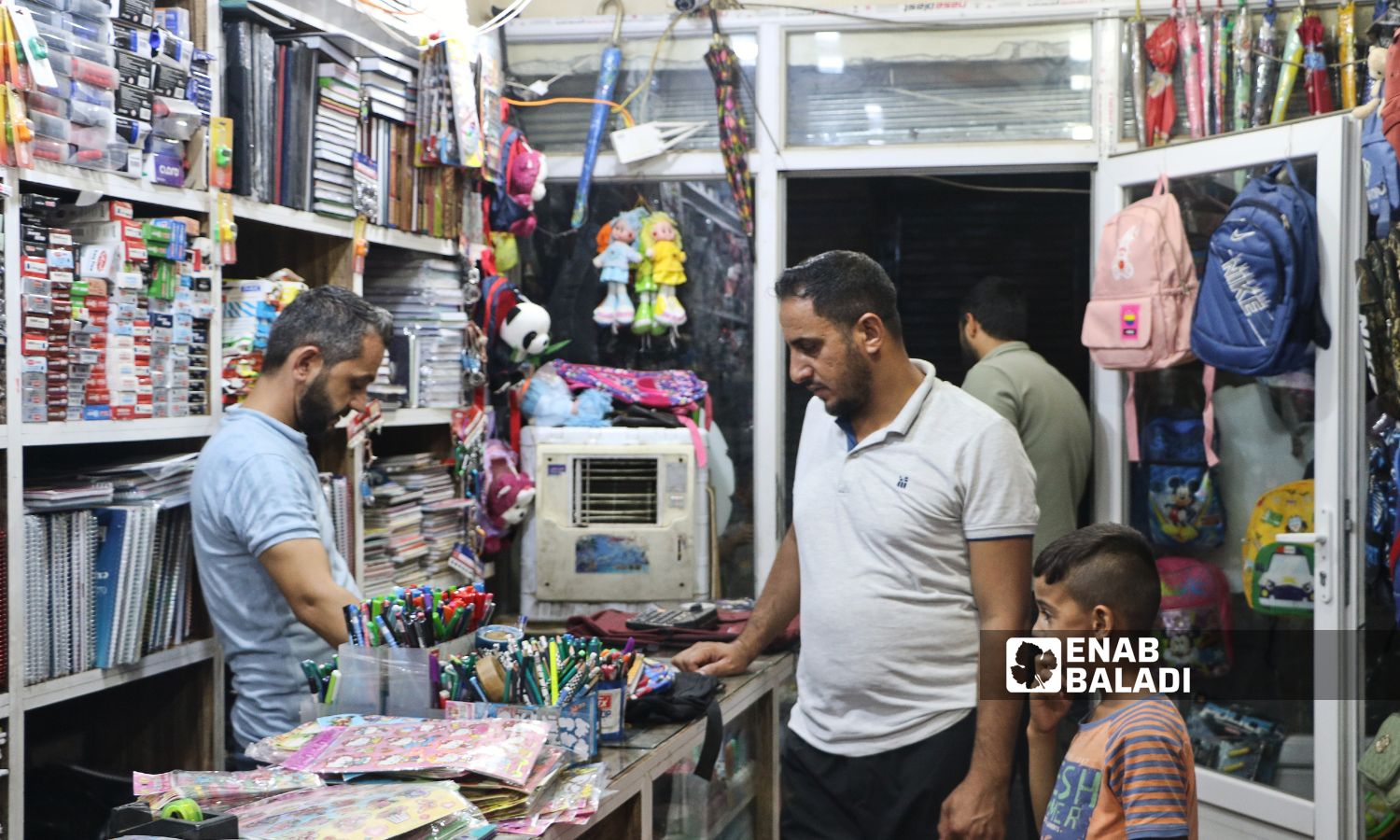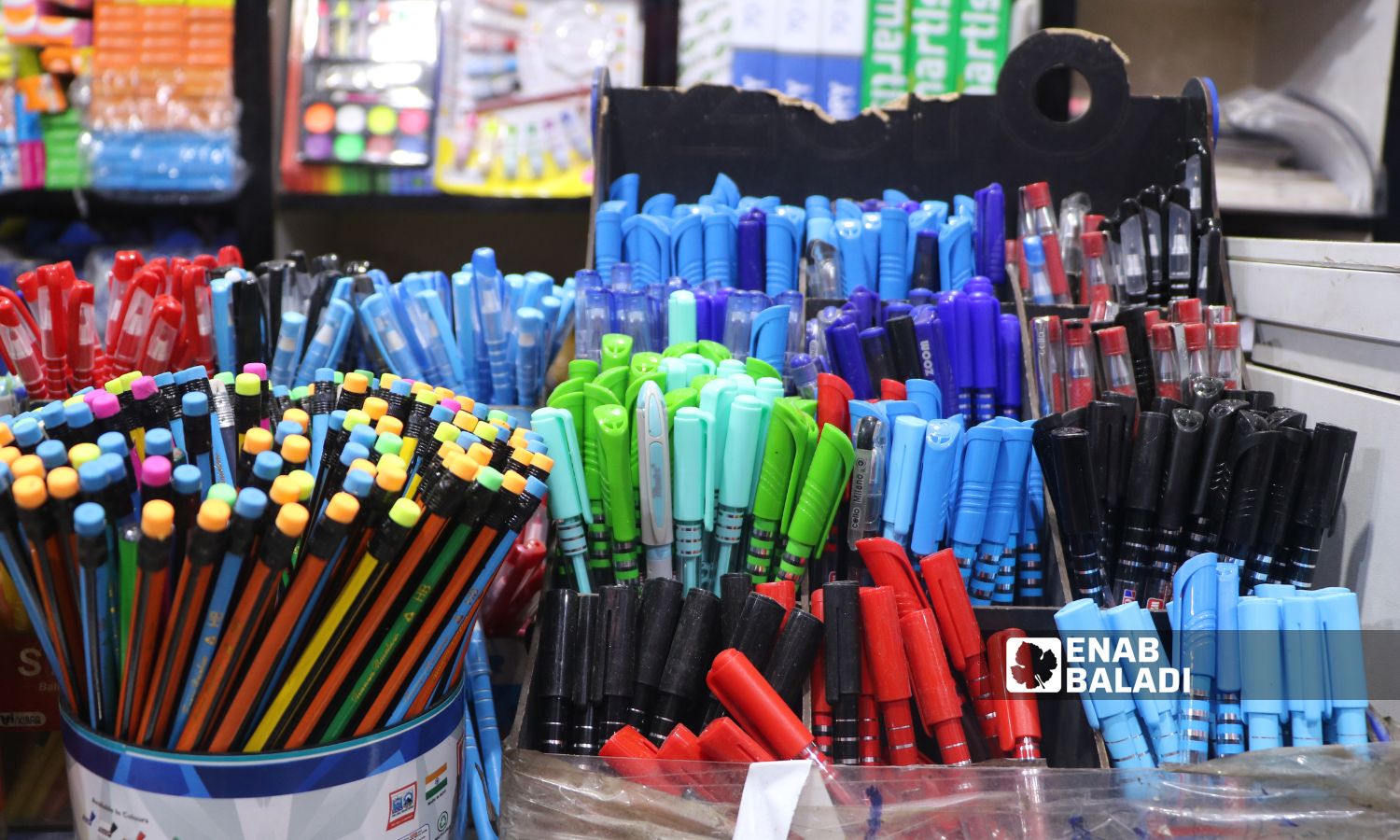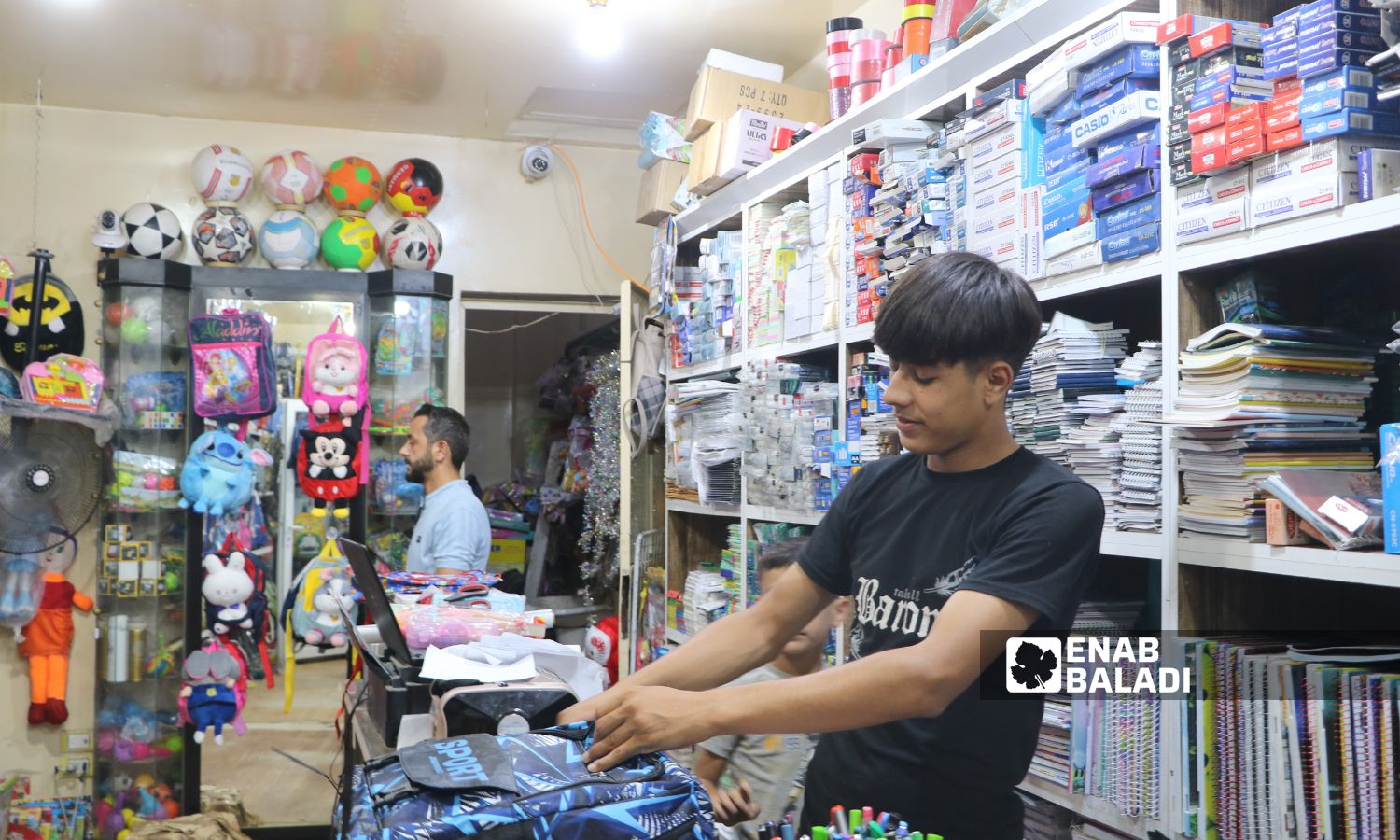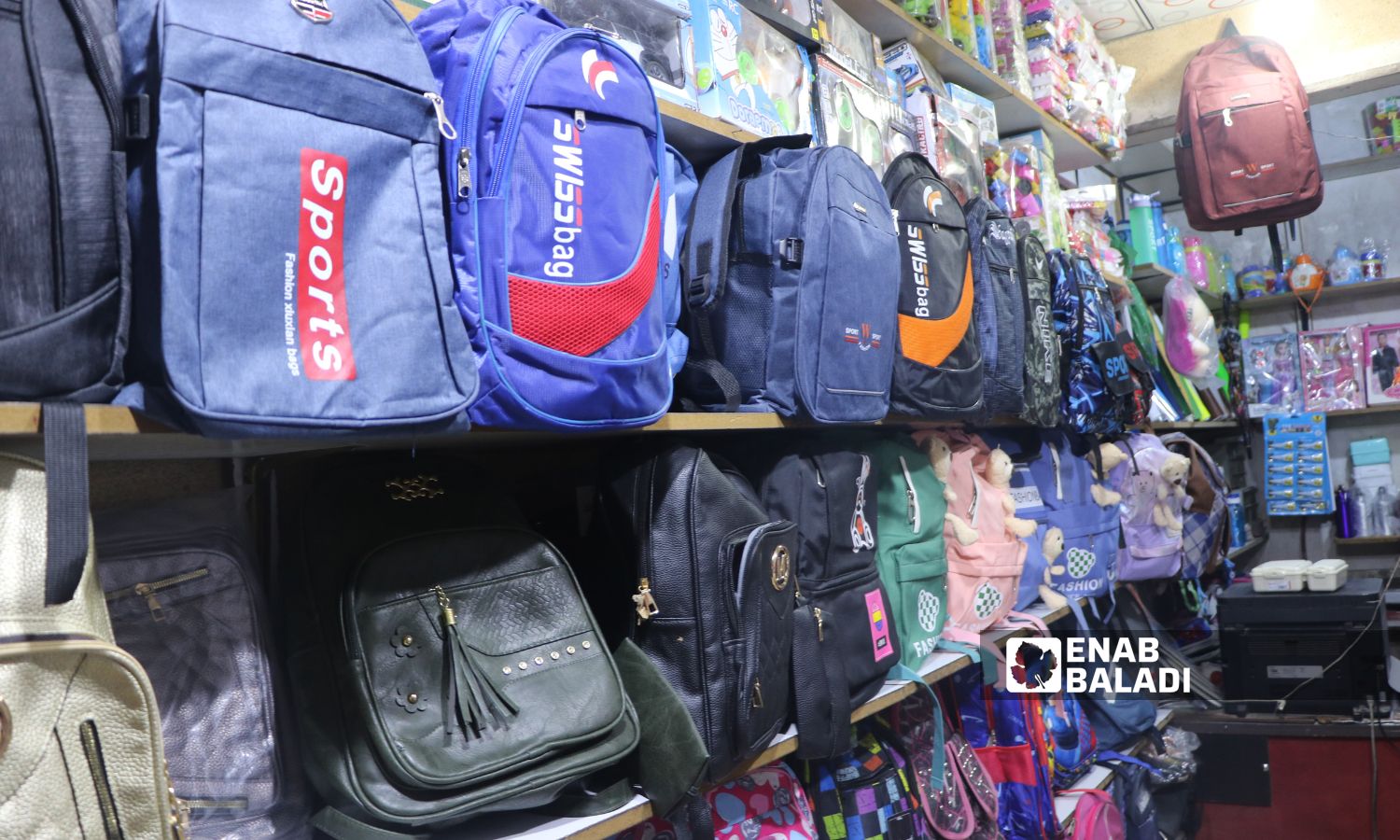



The city of Ras al-Ain, northwest of al-Hasakah, is witnessing a rise in the prices of school supplies. As the new school year begins, families face economic challenges that hinder them from securing their children’s stationery, school bags, and uniforms amid increasingly complex living conditions.
Enab Baladi monitored the prices of stationery in the markets of Ras al-Ain, where the price of a small school bag reached 60,000 Syrian pounds, a medium one 70,000 pounds, and a large one 100,000 pounds.
As for pens, the price of a pencil reached 2,000 pounds, an ink pen 3,000 pounds, and a box of colored pencils 6,000 pounds.
Regarding notebooks, the price of a small notebook (12 pages) reached 4,000 pounds, a medium notebook (30 pages) 7,000 pounds, and a large one (150 pages) 60,000 pounds.
The price of a water bottle that a child takes to school reached 25,000 pounds, and an umbrella 40,000 Syrian pounds.

Groups of pens in a stationary shop during preparations for the current school year in Ras al-Ain – September 9, 2024 (Enab Baladi)
The high prices put families and parents of students in financial challenges to provide these needs at the beginning of the school year. Family heads told Enab Baladi that these prices do not match the monthly income level, necessarily impacting the fulfillment of other daily family needs.
Adnan al-Kitan, a father of five children, said he faces difficulty in securing school supplies for his children. The high prices force him to reduce some of his children’s needs to survive the financial pressure and low income.
According to al-Kitan, this situation causes concern about the quality of his children’s education, in light of the absence of some basic tools that were easily obtainable in previous years.
On his part, Mohamed Abdullah, a father of a child in the first stage of basic education, said that preparing one child requires about 400,000 Syrian pounds, which only includes school supplies without counting the cost of new clothes.
Abdullah pointed to the financial pressures imposed by necessary expenses in this context, explaining that the only way for him is to reconsider his budget and reduce some essential expenses, as prices do not match the monthly income.
Samar al-Ahmad, a mother of three children, had to borrow from her sister to cover the costs of preparing her children for the school year, explaining that the high prices of school supplies put her in a difficult financial position, where her expenses exceeded her financial capabilities.

Parents buy their children school supplies at the beginning of the school year in Ras al-Ain, northwest of al-Hasakah – September 9, 2024 (Enab Baladi)
Mustafa al-Hussein, owner of a stationary shop in Ras al-Ain, explained to Enab Baladi that the high prices of school supplies are linked to most of the stationery coming from Turkey, which means additional costs such as crossing fees, customs, and loading fees, added to the price.
He also explained that these costs, including transportation and customs fees, greatly contribute to raising the prices of stationery.
The shop owner sees that the currency value difference plays a fundamental role in increasing prices, as the supplies are purchased in dollars while sold in Syrian pounds, which significantly raises the prices and adds to the families’ cost burden.
Al-Hussein pointed out that the return to school is usually considered a profitable season for stationary shops, where good profits can be made from selling school supplies. However, due to the lack of demand, the buying and selling activity is almost non-existent this year, negatively affecting shop owners as well.

School bags in one of the stationary shops at the beginning of the school year, as school supplies prices witness a rise in Ras al-Ain – September 9, 2024 (Enab Baladi)
Daily wages for workers in Ras al-Ain range between 80,000 and 100,000 Syrian pounds (between 5 and 7 US dollars).
Agriculture and livestock breeding are the main professions of most Ras al-Ain residents, forming a primary source of income for the population.
One US dollar equals 14,650 pounds when buying, and 14,750 pounds when selling, according to the S-P Today website specializing in currency exchange rates.
if you think the article contain wrong information or you have additional details Send Correction